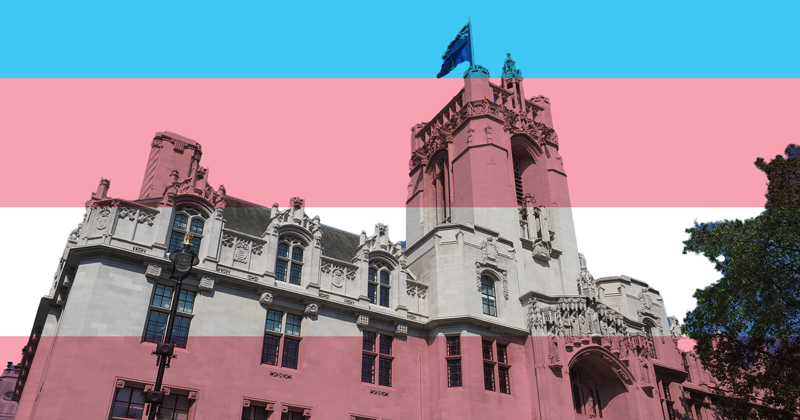The government has committed to publishing revised guidance for schools this year on supporting trans pupils, with the equalities watchdog also reviewing its advice in the wake of a Supreme Court ruling on the legal definition of a woman.
Legal experts have also urged schools to avoid a “blanket” approach in response to the judgment, which states that “woman” in equality law is based on biological sex, not gender identity.
Here’s what school leaders need to know…
What does the ruling say?
The campaign organisation For Women Scotland sought a judicial review of a decision by the Scottish government to allow trans women to count in its target of women filling 50 per cent of public board seats.
The challenge went to the Supreme Court, which ruled “a person with a [gender recognition certificate] in the female gender does not come within the definition of ‘woman’ for the purposes of sex discrimination in section 11 of the Equality Act 2010”.
How might it affect schools?
The impact is unclear, given children cannot obtain a gender recognition certificate.
The government will need to set out how schools should interpret the ruling – for instance, in new guidance – experts have said.
Schools already have a legal duty to provide sex-separated toilets for pupils aged 8 or more, apart from increasingly common individual toilets in fully enclosed rooms.
Schools must also provide suitable changing accommodation and showers for pupils who are aged 11 or more at the start of the school year.
It may have more of an impact on staff, although the ruling does not change the fact that trans people are protected from discrimination under the Equality Act.
What are teachers’ concerns?
Bridget Phillipson, the education secretary, said the ruling meant trans women must use men’s public toilets. Again, it is not clear how this will apply to school staff.
Teacher Becks Tebbit, speaking at the NASUWT union’s annual conference last weekend, described how “trans colleagues were in tears, shock and felt terrified” at the ruling. They were “now at serious risk of abuse, inequality and harm”.
Claire Ward said “any knee-jerk responses to policies in your workplace around trans rights” should be reported.

Julie McCulloch, the senior director of strategy and policy at the ASCL school leaders’ union, said leaders needed “clear, practical guidance from the government on how to interpret the law”.
Tomas Thurogood-Hyde, director of corporate services at Astrea Academy Trust, said it was “very important to us that the judgment affirms the right of trans members of our school communities to be protected”.
Students and colleagues with concerns “will be supported … with strong and caring relationships being at the heart of these”.
Toilets have usually been upgraded with fully-enclosed cubicles, accessible from the corridor to male and female pupils. And changing rooms remained single-sex. A “bespoke” solution was found if a problem arose.
Schools ‘navigating complex and contradictory guidance’
Adrian Packer, CEO of the CORE Education Trust, said his organisation had “always provided gender-neutral toilets and safe spaces for all students.
“We have also supported many young people through their transition processes on a case-by-case basis.”
He also warned that “this ‘issue’ is only going to become more significant in schools over the coming years.
“As with other sectors navigating complex and sometimes contradictory guidance, schools must remain sensitive, compassionate, pragmatic, and open to all non-prejudiced perspectives.
“Our goal must always be to ensure that every child feels safe, respected, and welcomed.”
Delivering on that aspiration “requires well-considered, inclusive, and clearly-understood policies – both in their development and implementation”.
What does the government say?
The last government published guidance on “gender-questioning children”, stating primary pupils “should not have different pronouns to their sex-based pronouns used about them”.
It also stated that “as a default, all children should use the toilets, showers and changing facilities designated for their biological sex unless it will cause distress for them to do so”.
The guidance has been under review since Labour took office last July.
This week, Phillipson said the government would “publish revised gender-questioning guidance for our schools this year to provide that necessary further clarity”.
The Equality and Human Rights Commission has also said that, where the judgment impacts on its published advice for schools, “we have committed to reviewing that advice as a matter of urgency.
“The EHRC will be issuing all updated guidance as soon as is practically possible.”
What do the lawyers say?
Lawyers at Stone King said it was “important to proceed with caution, mindful of the whole school community.
“Schools are advised to avoid a blanket approach, to look carefully at the circumstances of each case as it arises, and to take all relevant legal and practical considerations into account, seeking advice where necessary.”
Lawyers at Browne Jacobson said senior leaders and governors “should pause and understand their organisation’s position before reacting to the ruling”.
The use of single-sex spaces in schools “may need re-evaluation”. But schools “should consider the safety, privacy and dignity of all students while seeking ways to accommodate everyone’s needs”.
“It’s hoped further clarity will arrive with new government guidance.”








Your thoughts